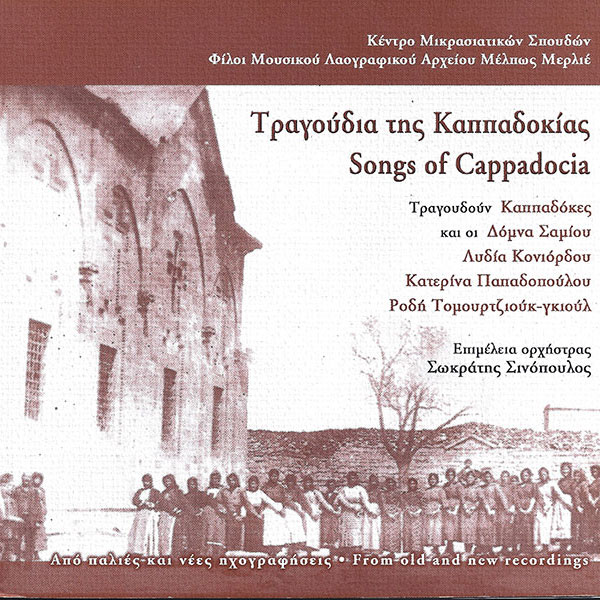00:00
Home / Her Work / Song Catalogue / Wedding Procession Song
Τραγούδι της πομπής του γάμου

Φαρλάτισαν1 τα γόνατά μ’
Και τρόμαξεν καρδούλα μου
Έλα κι εσύ, γλυκή μ’ νινέ2
Δεν δίνω ’γω την κάγια3 μου
Την κάγια μ’ καρφουμένονε
Στ’ ασήμι βουτηγμένονε
Έκαμα και πολέμησα
Τσαλέισα τσ’ απαλάτισα4
Απ’ το χέρι με πιάσανε
Στα ξένα με τινάξανε
Παρακαλές την Παναγιά
Να μην σας ρίξ’ στα ξένα, λε
1φαρλάτισαν: έτρεμαν
2νινέ: μητέρα
3κάγια: κάλυμμα κεφαλής
4Τσαλέισα τσ’ απαλάτισα: εργάστηκα και μόχθησα
The bride sang this song while she was led from home to church for her wedding. While singing it both she and her family used to cry.
Time signature: Loosely 3/4
Mode: Diatonic D (plus subtonic) within the range of a major sixth. Degree II fluctuating.
Transcription of the original 78 rpm recording of 1930 by Melpo Merlier, founder of the “Music Folklore Archive”. The bride sang this song while she was led from home to church for her wedding. While singing it both she and her family used to cry.

Singers

Informant (source of the song)